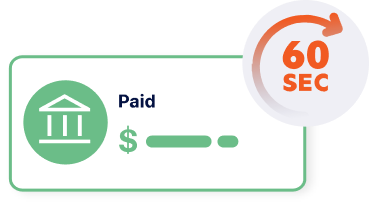Opening a business bank account might feel like a daunting task, especially when you’re already struggling with personal expenses. It’s even more burdensome to sift through all your expenditures and recall every purchase! That’s why keeping your personal and business finances separate is crucial. Many business owners even choose to use two different banks—one for personal use and another for business. This clear separation makes it easier to manage your finances, simplifies tax filing, and improves your company’s transparency.
But first, you need to pick the right business banking account. Here at Forwardly, we understand how overwhelming this can be, so let’s walk through some helpful tips to make the process smoother.
Understand the required documentation
Before you walk into a bank, it’s vital to know what documents you’ll need to open a business bank account. Generally, banks require:
- Business registration documents: This could be your Articles of Incorporation, LLC operating agreement, or any documents that prove your business is legally registered.
- Tax identification number (TIN): This is usually your Employer Identification Number (EIN), which you can obtain from the IRS.
- Personal identification: A government-issued ID, like a driver’s license or passport, is typically required for all owners and authorized signers.
- Operating agreement or bylaws: If applicable, these documents outline your business’s structure and rules.
- Business licenses: Depending on your industry and location, you may need to provide proof of any necessary licenses to operate.
Having these documents ready can expedite the process and make it much smoother when you finally decide to open your account.
Identify your needs
When shopping for a business bank account, think about the specific services you’ll require. This isn’t just about finding the best interest rates or convenient ATM locations; you need to consider your unique business needs. Some must-have features include:
- Checking and savings accounts specifically for businesses
- Online banking access
- Credit and debit card options
- Payroll features
- Wire transfer capabilities
- Discounts on services like shipping or office supplies
Take the time to compare the features offered by different banks to find the one that fits your business model best.
Compare Bank Sizes
While larger, well-known banks offer convenience and a wide range of services, smaller local banks often provide a more personalized touch. Local banks are invested in the community and may be more flexible with loans or fees. They might even offer tiered interest rates to compete with bigger banks. As you weigh your options, consider the type of banking experience you want—one that offers extensive services or one that values personal relationships.
Network with Other Business Owners
Networking with fellow entrepreneurs can be incredibly beneficial when choosing a business banking account. Ask around about their experiences with different banks. You might even discover referral bonuses that can help you both! If you don’t have personal connections in the business community, online reviews can also provide insight into the banking options you’re considering. Look for balanced feedback to guide your decision.
Build a Relationship with Your Banker
Once you’ve chosen a bank, make an effort to establish a relationship with a banker. Working with the same person each time can provide continuity and build trust. A familiar banker will understand your business’s needs and may even find you better rates or discounts that you weren’t aware of. This relationship can make financial dealings less stressful and more beneficial.
Ease of integration
When you’re choosing a business banking account, one key factor you’ll want to think about is how well it can integrate with your existing financial systems. If you’re already using accounting software like QuickBooks or FreshBooks, it makes sense to pick a bank that can easily sync with those tools. This can save you a ton of time and hassle by automating things like data entry and transaction tracking.
So, when you’re on the hunt for the right bank, make sure to look into how well their services can mesh with your current financial systems. It could make a world of difference in how you manage your cash flow and run your business!
Trust Your Instincts
Ultimately, trust your gut when selecting a bank. After doing your research and considering your needs, which institution feels right? Confidence in your choice will lead to a more positive banking experience.
Choosing the right business banking account is just one part of managing your cash flow effectively. Knowing what you need to open a business bank account can help streamline the process, allowing you to focus on other strategic plans. With your finances in order, you’ll be better positioned to manage cash flow, handle expenses, and meet your financial goals.
At Forwardly, we’re all about simplifying financial processes for small businesses. Our platform offers tools like cash flow forecasting and faster payment options like Fednow instant payments and same-day ACH transfers, helping you stay on top of your finances with ease.
If you’re finding it challenging to manage cash flow, Forwardly is here to help. We’re dedicated to supporting small businesses in improving their cash flow with our modern payment solution, so you can focus offering the best services and products without worrying about your finances. Watch our product tour here!
 Back to Blog
Back to Blog



